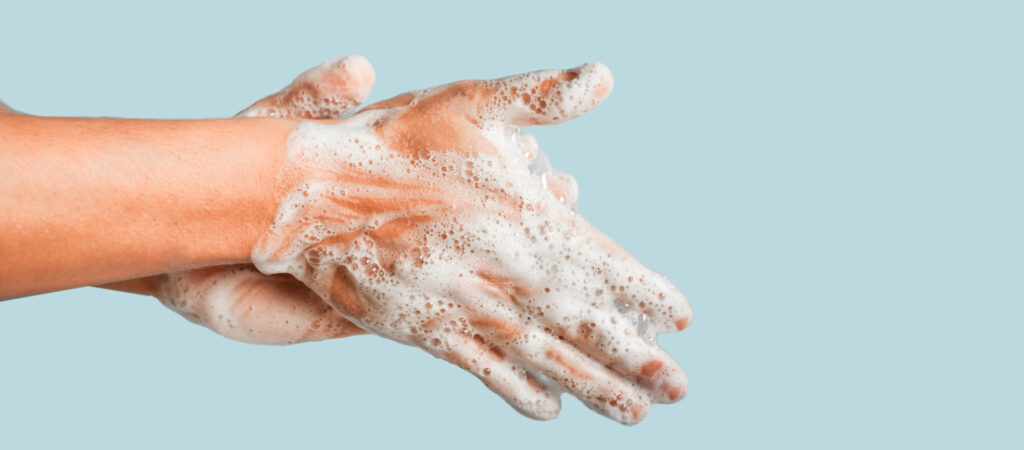How to Wash Your Hands (Without Hurting Your Skin)
A dermatologist shares the right way to sanitize your hands without irritating your skin.
As we all take precautions during the spread of COVID-19, most of us have been washing our hands more attentively (and maybe even aggressively) than ever before. This is good — washing hands well and often, and especially before you eat or touch your face, is essential to protect yourself from COVID-19 and other illnesses.
But washing your hands frequently and using alcohol-based hand sanitizers can lead to dry, irritated skin, which is not only uncomfortable but can lead to skin infections. To prevent dermatitis on your hands, while still protecting yourself and others from germs, follow this advice:
1) Batch your hand cleansing. This means once you have cleaned your hands, do all sorts of activities which require absolutely clean hands like touching your face to put on makeup, food prep or eating. Remember that screens are often dirty so disinfect phones, tablets, and any surfaces that you or others touch frequently.
2) If you are sheltering in place, you can develop your home as a “clean zone.” Be sure you have cleaned your home and its surfaces well and clean any new things you bring into the home. Cleanse your hands once you come in from the outside and then you can minimize hand cleansing, although you should still wash them again before eating or touching your face.
3) Avoid hot water, which is more irritating to skin. Many people don’t realize that hot water isn’t necessary for hand washing. The important part is that you put water on your hands before soap, add soap, lather, and rub thoroughly for at least 20 seconds, then rinse. Using soap, water, and friction to break down whatever is clinging to the skin, and then rinsing it away with water, is the important part — water temperature is irrelevant.
4) Antibacterial soaps aren’t necessary — and these formulas may be more irritating to your skin than regular soap.
5) Rub, don’t scrub. Again, you should thoroughly lather up your hands for a minimum of 20 seconds, but gentle rubbing is adequate — no need to aggressively scrub.
6) When you’re done washing your hands, dry them thoroughly with a clean towel. Leaving water on your hands will dry your skin out more as the water evaporates.
7) Moisturize! Use hand moisturizer regularly, keeping it by your sink or near your hand sanitizer, and slather it on your hands after you wash or sanitize. Creams are more moisturizing than lotions and those designed for hands are usually most moisturizing. If your hands get really dry, order cotton gloves to wear at night, and slather your hands in Vaseline before putting on the gloves before bed. (This really helps!)
8) Wear gloves when you clean. You might be cleaning your home more than usual, and you should wear cotton-lined rubber gloves for wet work such as doing dishes, cleaning countertops, and scrubbing bathrooms. This will protect your hands from unnecessary exposure to detergents and harsh chemicals — this is especially true if you are using bleach to disinfect. Wear a different set of gloves for the kitchen than you do for bathroom and household cleaning.
If you develop a bad rash or severely irritated skin that doesn’t respond to these suggestions, contact a dermatologist for help. Many dermatologists are offering telehealth appointments as our nation struggles with COVID-19.
About the Author
Dr. Holly Christman is a board-certified dermatologist and Nurx advisor. As a Mohs and dermatologic surgeon she washes her hands a lot even in normal circumstances.
This blog provides information about telemedicine, health and related subjects. The blog content and any linked materials herein are not intended to be, and should not be construed as a substitute for, medical or healthcare advice, diagnosis or treatment. Any reader or person with a medical concern should consult with an appropriately-licensed physician or other healthcare provider. This blog is provided purely for informational purposes. The views expressed herein are not sponsored by and do not represent the opinions of Nurx™.







